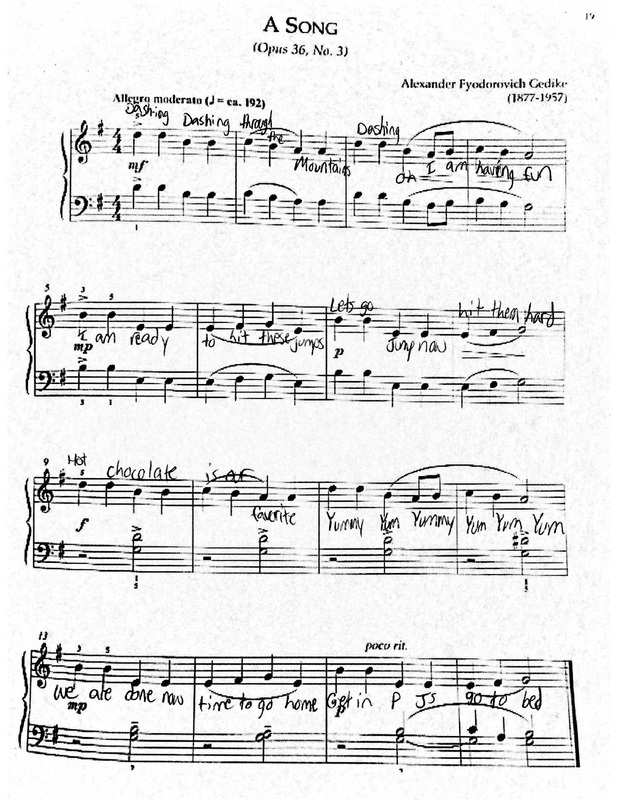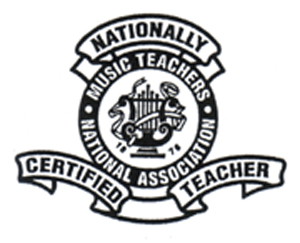|
I gotta admit it. I'm a super-patient person and teacher, but I do have a few pet peeves. No chewing gum during lessons. Please don't play when I talk to you. And, here's one more: I cringe when I hear (advanced) piano students refer to their piano pieces as "songs."
Although we strive to imitate the phrasing of a singer, there is actually an important distinction between what we refer to as a "song" or as a "piece." This is important in casual conversation (in your lessons with your oh-so-patient teacher, when telling your friends about the repertoire you are studying or performing).. and this is crucial for publicly announcing your selection at a recital, festival, or competition. Here is my (somewhat simplified) definition: A song is written for the human voice and typically has words. A piece is a composition, typically (but not limited) written for an instrument other than voice. In other words, you sing a song, you play a piece. So... if you're learning a really awesome piano piece and want to tell someone all about it, take note of the following: Wrong: "I really love this song I'm learning." Right: "I really love this piece I'm learning." If you are announcing it in a recital: Wrong: "I'm going to play a song called Winter Rhapsody." ALMOST right: "I'm going to play a piece called Winter Rhapsody." Why almost right? Please be sure to always give the full name of the composer, the type of piece, the movement (if applicable), and any identifying numbers (note: "Op." stands for Opus and should be announced with the composition). Right: "I'm going to play Winter Rhapsody by Dennis Alexander." You may also call it a "work" or "selection." If it is a Nocturne or Sonata (or another category of piece) you can announce it as such. Wrong: "I'm going to play a song by Mozart." ALMOST right: "I'm going to play a piece by Mozart." ALMOST right: "I'm going to play a sonata by Mozart." Right: "I am going to perform a selection by Wolfgang Amadeus Mozart. This is Allegro - the first movement of his Sonata in C Major, K545. " Awesome: "I am going to perform the first movement of Wolfgang Amadeus Mozart's Sonata in C Major, K545. The tempo marking is Allegro." Got it? Good. :) Now, for a cool little example of a piece that's been turned into a song. Piano Prodigies student Morgan (age 10) was assigned a piece by Alexander Fyodorovich (FYAW-DAW-RAW-VEECH) Goedicke (GEH-DEE-KEH) that the composer himself called "A Song." I asked Morgan to write lyrics to it. She successfully did so and thus transformed the piece "A Song" into (drumroll please) a... song (that can be sung). Here's the final product. Great job, Morgan!
1 Comment
|
AboutElizabeth Borowsky is a pianist, teacher, and composer. She is a Nationally Certified Teacher of Music in Piano (Music Teachers National Association). SubscribeCategories
All
Archives
May 2023
|
Location |
|




 RSS Feed
RSS Feed